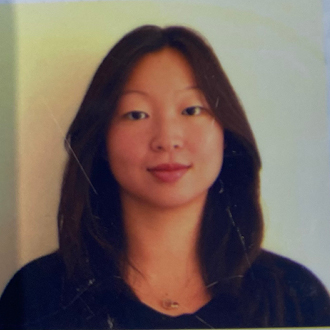With a complicated history of political turbulence, Myanmar (formerly Burma) is re-experiencing another violent military repression. The root of this renewal of political violence, can be contextualized by the military coup in February 2021, the immediate response to the event, and the current news of the situation. Myanmar was ranked second on the ACLED Conflict Index for July 2024[1], exemplifying why Political Risk Insurance (PRI) is an important risk mitigation tool for investors/lenders in low- and middle-income jurisdictions where the risk environment is more unpredictable.
Background of the 2021 coup
On February 1, 2021, General Min Aung Hlaing led the Tatmadaw, the military force, to launch a military coup against the democratic government and its ruling party, the National League for Democracy (NLD), invalidating the November 2020 general election results. Myanmar’s current socio-political instability, along with its history of political volatility highlight the relevance of PRI. This is not limited to Myanmar - these factors are commonly found in other countries and regions.
High levels of political violence and social unrest can potentially lead to government interference and expropriation of foreign companies, disruption of global trade, devaluation of national currencies, and more. The State Administration Council (SAC), the official governing name of the military junta, justified its action of detaining President Win Myint, State Counselor Aung San Suu Kyi, and other senior officials of the NLD with charges of corruption, putting them under house arrest and surveillance, enforcing a one-year state of emergency and reversing Myanmar back to a military state. The intense military crackdown on any socio-political opposition groups resulted in the strong subsequent rejection of the Tatmadaw through a wide spread of significant protests.
Response to the 2021 Coup
With a widespread rejection of the leadership of General Hlaing, thousands of civilians banded together towards Myanmar’s anti-coup movement, known as the Spring Revolution. According to a report from ACLED, an international non-profit organization that specializes in collecting data on political violence across the world, there were more than 4,700 estimated demonstrations in response to the military coup at the end of June 2021[2]. Although the protests intended to be peaceful, such as boycotting work, the SAC deemed these acts as unlawful practices of civil disobedience, in which civilians were met with violence by the Tatmadaw. This triggered a surge of various political crimes and violence. Additionally, the war has had a significant negative impact on various sectors, such as construction, hospitality, and tourism.
After a year of turmoil, various corporations, such as Woodside Petroleum, Voltalia, Posco, TotalEnergies, and Chevron[3], made official announcements withdrawing from Myanmar to minimise their exposure to the high levels of political violence and forced abandonment risks. The National Unity of Government (NUG), was formed as a political response to the imposition of military rule, unifying the various ethnic groups, and garnering support of international organizations and foreign governments. By officially declaring war against the Tatmadaw on September 2021, NUG created its own armed division, the People’s Defence Force (PDF). As a result, a civil war between the Tatmadaw and PDF invoked high levels of political violence that extended to a number of major cities, including Yangon, Myanmar’s largest city and former capital. As part of this anti-junta movement, 2023 saw the development of an alliance between three major opposition armies, renewing hope of overthrowing the SAC, and leading to the launching of Operation 1027.
The significance of Operation 1027
On October 27, 2023, the Three Brotherhood Alliance (3BTA), gathered 15,000 fighters, and launched a coordinated anti-SAC offensive on various military outposts in northern Shan State. This attack became known as Operation 1027, successfully capturing towns and military bases. Operation 1027 was the turning point for resistance groups, overturning the tables against the military. With the success of this operation, it renewed a wave of hope towards the Spring Revolution, in which NUG along with its armed division, PDF, declared its support for the tactical anti-military offensive. Operation 1027 could well be the start of the end of the Tatmadaw administration.
Closing remarks
Since the attack at the end of October 2023, Myanmar’s junta has significantly lost control, particularly among its borders. By taking advantage of garnering momentum and attention, the 3BT movement has gained control over military posts in the north and east that borders along with China and Thailand, as well as Bangladesh and India in the western borders. In four months, the 3BTA was able to take control of 18 towns and overrun 36 military bases. According to its assessment, SAC concluded that among the 51 townships with international borders, only one was under “stable junta control”. Furthermore, aside from the border areas, 30 townships are majority-controlled under the leadership of anti-coup forces, in addition to 14 townships where the alliance had secured and maintained full authority.
However, the civil war in Myanmar comes with an expected price of severe loss and displacement. The United Nations estimates that more than three million civilians have been forced to flee due to the escalation of political violence in Myanmar, particularly towards the Muslim Rohingya minorities. With high levels of political violence, political polarisation and societal discontent, this interlinked domino effect creates major challenges for Myanmar to reach a stable domestic political environment.
Political risk is often unpredictable and volatile, as we have seen in the case of Myanmar, and therefore it is important to partner with risk mitigation providers who take a long-term client led approach based on market leading underwriting capabilities.
At Liberty we take a ground-up underwriting approach; taking time to understand the nuance of each investment and providing solutions to our clients that add value. We aim to build long-term relationships with our clients; supporting them across their portfolios of investment, which can be across a range of countries and sectors. Whilst we may not have appetite for every risk in every country, we diligently consider all enquiries that we receive and ensure that we are a strong partner to our key clients and distribution partners.
[1] https://acleddata.com/conflict-index/index-july-2024/
[2] https://acleddata.com/2021/07/22/myanmars-spring-revolution/
[3] https://www.reuters.com/article/myanmar-politics-foreign-companies-idUSL8N2U12AI/

